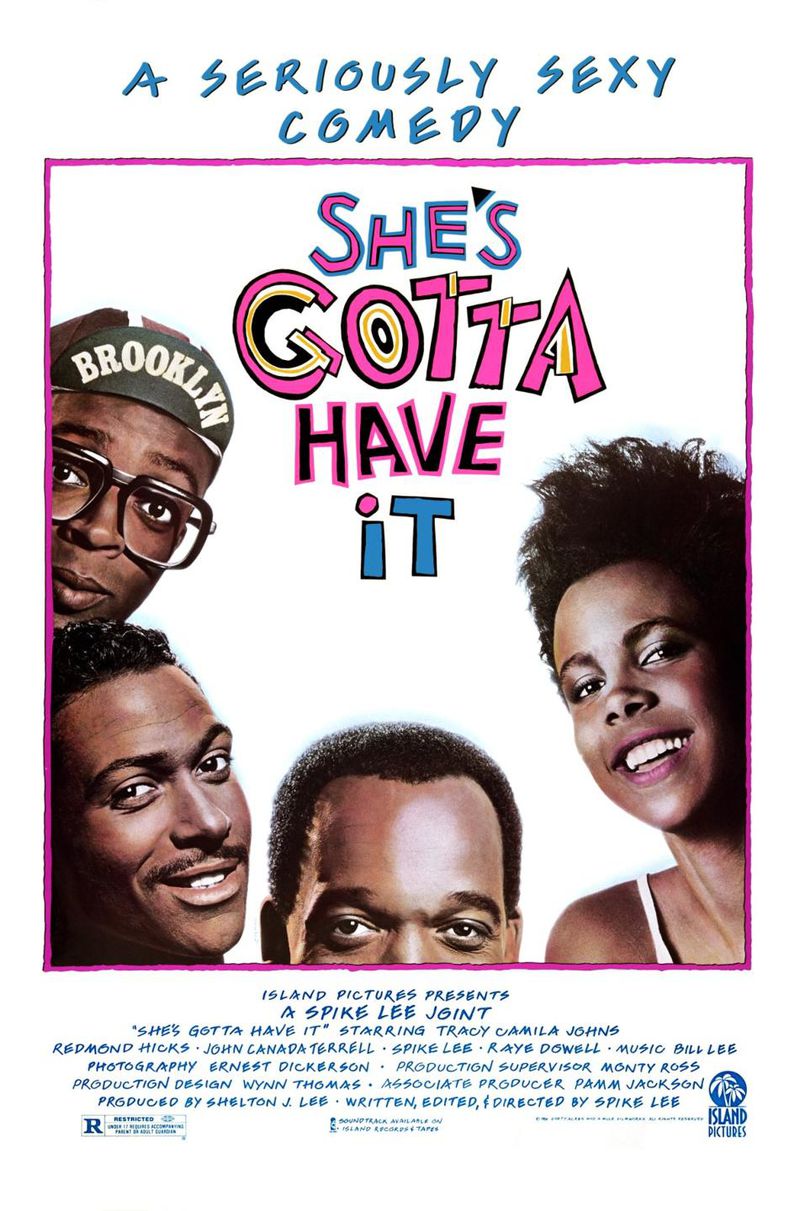
- Starring
- Tracy Camilla Johns, Tommy Redmond Hicks, John Canada Terrell
- Writer
- Spike Lee
- Director
- Spike Lee
- Rating
- R (United States)
- Running Time
- 84 minutes
Spike Lee has dabbled into many genres and has made a few iconic films, some underrated ones, and even a handful of bad ones. His influence as a filmmaker cannot be overstated, as his films touch upon the nerve of current American society–even his older films. Lee’s debut film, the 1986 romantic sex comedy She’s Gotta Have It, is vibrant and innovative, starring Tracy Camilla Johns, Tommy Redmond Hicks, John Canada Terrell, and Lee himself, The film is a sparkling look at love, sex, and everything in between.
She’s Gotta Have It follows Nola Darling (Johns), a young twenty-something living in Brooklyn. She is enjoying sexual relationships with three different men: seemingly polite Jame (Hicks), cocky model Greer (Terrell), and the weird guy Mars (Lee). Nola wants to keep seeing all three men, but only Greer seems to understand that each man gives something unique to Nola. Jamie and Mars each want Nola to be with only them. Eventually the three guys meet and talk about Nola. Neither Greer nor Mars wants to force Nola to pick, but Jamie insists.
While the sexual politics might seem dated, one can imagine in the mid-1980s that this kind of narrative would seem radical. Nola is unapologetic about her romantic desires, and is quite open about her choices. Nola doesn’t want to be owned by anyone, and, even in the end of the film, equates monogamy with entrapment. Mars and Jamie are trying to push her into a box, when they could easily leave her to find monogamy elsewhere. However, they don’t because part of what makes Nola so alluring (to them and to the audience) is her unknowability, her confidence, and her independence. She’s a romcom heroine like few before or after her, captivating in how she resists captivity.
Nola reminded me of the pilot episode of the HBO series Sex and the City, where the four Manhattan women declare to have sex without commitment like men do. And that’s exactly what Nola is doing–she’s not that much different from the men who bounce from woman to woman except Nola isn’t duplicitous about it. Which is why Jamie and Mars are uncomfortable with Nola; they are being treated like women and Nola doesn’t even pretend otherwise. Greer points out that Nola sees each man as a one-third of a collective, parts of a whole. She objectifies them in a way many men are not or wouldn’t be comfortable with.
There is a scene that jolts the viewer out of the film, the one when Jamie forces Nola to pick between the three men. He rapes her, mocking her sexual experiences with the other men. It’s a weird scene, because Lee stages it with none of the gravitas a scene like that should have. He himself said that he regretted how lightly the incident is depicted in the film during press for the 2017 Netflix remake. It’s the film’s biggest misstep but thankfully Nola reclaims her power and autonomy in the film’s final moments.
That aside, She’s Gotta Have It looks absolutely stunning. The black and white cinematography is stunning to behold, capturing the architecture, the apartments, and the residents of Brooklyn so lovingly. The score is eclectic and quirky. Lee chooses a French New Wave-inspired documentary style, with in camera interviews and a low-key vibe. The performances are pitch-perfect, especially Tracy Camilla Johns. Her authenticity, her radiant beauty, and her convictions are magnetic and Nola is a fascinating lead character. That a film like this featured an all-Black cast was almost unheard of in 1986, and even now is unfortunately all too rare. She’s Gotta Have It shows that Spike Lee emerged as a fully formed filmmaker. His distinct voice and spirited aesthetic are clearly visible in this debut, and shows signs of what would make him such a forceful storyteller.
*still courtesy of Island Pictures*
Follow me on Twitter and Letterboxd.
Don’t forget to follow us on Twitter or Instagram or like us on Facebook. Also subscribe to our YouTube channel.
Discover more from
Subscribe to get the latest posts sent to your email.
